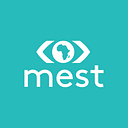Overcoming infrastructure challenges in Africa: MAS 2019 Panel
From solar energy, to electric cars— how innovative African companies are overcoming infrastructure challenges
One of the more interesting panels we’re looking forward to at the upcoming MEST Africa Summit is titled Overcoming Infrastructure Challenges. African markets are known for their ability to ‘leapfrog’ - overcoming limitations of existing technologies and infrastructure to develop innovations that work better for them.
We’ve seen this with the development of mobile money, the astonishing rate of mobile phone penetration, new payments systems, innovations in data-driven credit scoring, and even businesses that are leveraging a pay-as-you-go model to enable better access to products and services. Right now, some of the most impressive innovations in cleantech, sustainability and transport in the world are happening on the African continent.
On June 11th in Nairobi, we’ll be hearing Irfan Mirza of Trend Solar off-grid electrification, Juha Sujaonen of Ekorent electric ride-sharing, Mikael Gange of Opibus electric drive trains and Snehar Shah of Azuri Technologies pay as you go solar technology, discuss how their companies are moving African markets forward by leveraging new technologies to overcome challenges in existing infrastructure.
Cleantech: off-grid solar projects reach the rural
Off-the-grid solar energy products, who employ a pay-as-you-go model offering mobile money access, has seen explosive growth in Africa over the last decade. According to the Business Report, “The total power derived from solar has officially outpaced any other fuel with regards to global energy output. A report conducted by The International Energy Agency (IEA) predicted unrelenting solar PV is expected to represent the largest annual capacity additions for renewables, exceeding wind and hydro within the next five years.”
Today, three quarters of Africa’s rural population lack access to electricity, and many continue to rely on expensive and dirty fuels like kerosene and diesel. According to How We Made it in Africa, decentralized energy service companies (DESCOs) “have raised in excess of US$360m in financing and currently provide energy services to over 700,000 customers in East and West Africa.”
These solar companies, particularly in East Africa, from mKopa, to Zola Electric, to Trend Solar and Azuri, as well as in West Africa, from Saha Global, to PEG and Oolu Solar, see the potential in solar energy as a promising solution to the ever-present energy crisis and consistent load shedding still present across the continent.
Leveraging this model has enabled more people across the continent to tap into the solar grid via mobile money, without having to worry about missed payments or major upfront costs. Those that demonstrate a greater ability to pay have been able to access more products using the same model — from mobile phones, to televisions, to bicycles and more.
Further, companies like Virunga Power support those working to provide access to renewable energy across rural Africa by jointly developing and financing projects with local developers and rural communities.
Ride sharing, electric transport and drone deliveries
Companies like Nopia and Opibus are tackling transport issues with eco-friendly technology to keep African economies moving. Nopia’s vehicles are are 100% electric and offer drivers 30–50% higher revenue than traditional gasoline cars.
Opibus offers a powerful, cost-effective and environmentally friendly alternative to running vehicles on diesel. Their technology allows vehicles to be converted to electric, while they continue to invest in building energy systems using high quality solar panels and modern lithium battery storages.
One of the most prominent companies overcoming challenges in physical transport across Africa is Zipline, who is leveraging drones to deliver life-saving blood and medication in areas where roads and access are lacking. Valued at $1.2B, with total funding of $225 million, the company gained commercial traction “by flying lifesaving medical supplies to thousands of rural clinics” in Africa and is looking to expand into the US this year, as well as further across Africa, South Asia and Southeast Asia.
We’re thrilled to have voices from these industry-leading organizations join us at the MEST Africa Summit this year, to discuss how we can continue to leverage new technology to overcome infrastructure and energy challenges. Register to attend the Summit in Nairobi, June 10–12, here.
